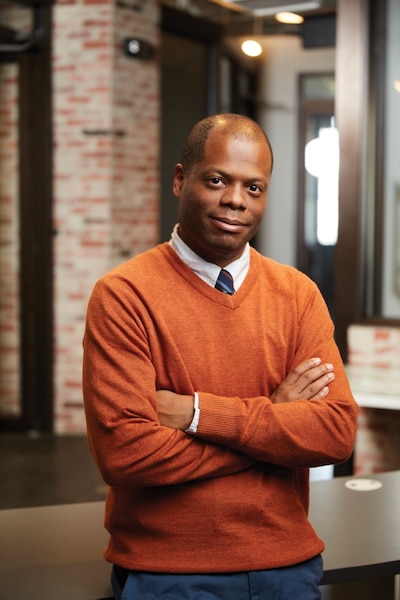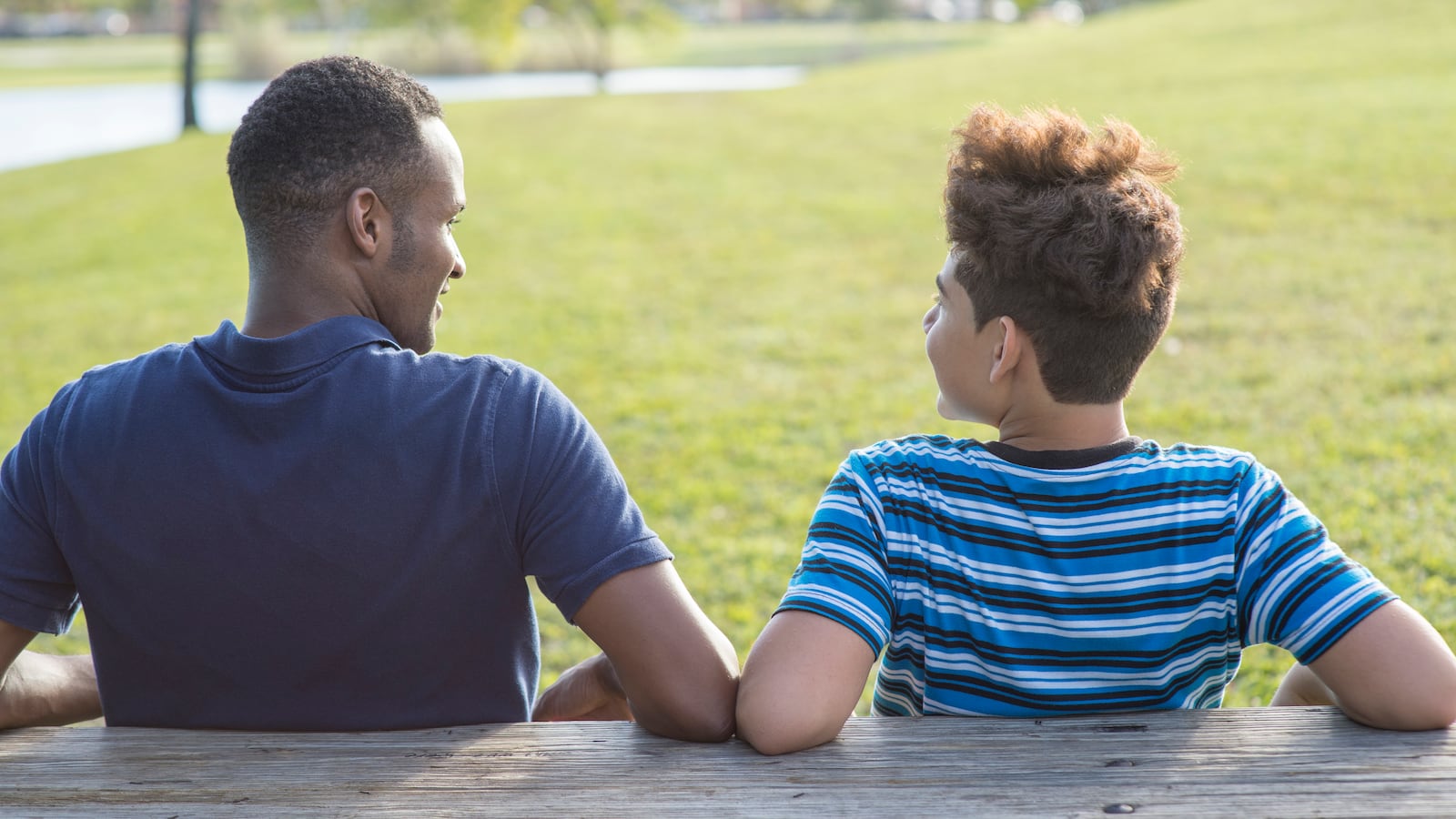The state of Maryland considered Marcus a runaway when he showed up at my doorstep.
I was 27, single, and working at the local Boys & Girls Club, where I’d first met and become a mentor to Marcus (a name I’m using to protect his privacy). He was 17 and bouncing between foster care placements and group homes.

The Marcus I knew was bright, resilient, and compassionate. He was also coping with years of instability and trauma. You could see it in his disdain for school, his advanced life skills — he had stayed home alone for extended periods — and his desire to latch on to others. He was on a journey to find himself while balancing the loss of family.
I took Marcus in and spent the next two weeks working with the state’s foster system to get him back into a home. Those plans changed one day when Marcus looked at me and said, “Mr. Tim, I want to come live with you. I don’t want to go back to foster homes.”
I’d like to say I didn’t think twice about taking Marcus in for good. In reality, I labored over the decision. Who was I, at just 27, to take care of a teenager? Eventually, I put aside self-doubt, and Marcus’ two-week stay turned into three and a half years.
That decision marked the beginning of a long and rewarding journey as a foster parent. I’ve now fostered more than 20 boys over the past 12 years. Most of my foster sons were boys of color, and many were dealing with trauma or mental health challenges.
I’ve made a lot of mistakes as a foster parent but also learned a lot of lessons about supporting kids in crisis — lessons that are particularly relevant now as schools struggle to address students’ growing mental health needs.
I’ve learned how powerful it is for boys and young men to have a male mentor or role model they can relate to. One reason Marcus and I quickly developed a bond was that I was one of the few Black men in his life. He saw in me what his future could look like. Knowing this, I’m convinced we need more men, especially men of color, working in schools and community organizations so they can be role models to students who may be struggling.
I’ve worked with a lot of youth who’ve been suspended, expelled, and arrested. None of them are ‘bad’ kids.
We also need educators who understand that young people’s behavior reflects what they’ve been through. Marcus had been written off as a “bad” kid by many of the adults in his life. He was often in trouble at school and had a hard time focusing because of the weight of his circumstances. It wasn’t his fault he ended up in the foster care system. It did, however, become his burden to navigate alone.
Over the years, I’ve worked with many youths who’ve been suspended, expelled, and arrested. None of them are “bad” kids. As adults, we must give them the space, time, and support they need to work through their traumas.
For schools, that doesn’t mean turning a blind eye to unsafe or harmful behavior, but it does mean not defining kids solely by their behavior. It means giving them the space and support to work through trauma rather than reflexively punishing or criticizing.
Sticking to this mindset isn’t easy. As adults, we’re accustomed to projecting our own expectations on young people, and we’re disappointed and even angered if they don’t meet them. I’ve become more aware of the expectations I’m projecting. Are they fair? Do they take into account what someone has been through? Do they have the young person at heart?
I also made the point with Marcus and all of my foster kids to provide the space to share their stories with me and to listen — truly listen. That means providing your complete uninterrupted self and affirming their thoughts. For example, Marcus asked me once if it was okay to love a family member but not like them. I replied in the affirmative because conflicting feelings are not wrong; they can be healthy. As adults, we often underestimate the power of listening to kids and letting their stories be heard.
Schools can apply these lessons for supporting foster kids to all students who’ve experienced trauma. These children need adults at school who will listen to and affirm their feelings and experiences, have patience and empathy as they work through their anguish, and avoid defining them solely by their worst behavior. Practically, that means training educators in trauma-informed teaching, looking for alternatives to punitive discipline, and hiring a diverse educator workforce that reflects the students they’re serving.
Marcus is now older than I was that day he showed up at my doorstep. He is a successful father and a thriving visual and performing artist. Each day I can see the hope I had for him in action. He’s proof of the power that strong, supportive, and empathetic relationships can have for youth, especially those in crisis.
Tim Wills is the chief impact officer of MENTOR, a national organization devoted to expanding quality mentoring relationships for young people.



